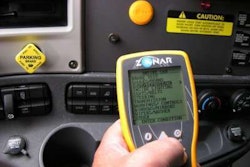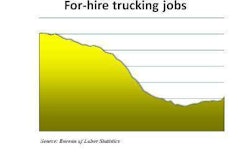An Illinois state task force charged with investigating the use of Global Positioning System technology as well as compliance with the Designated Truck Route System submitted its report and eight recommendations to Illinois’ governor and General Assembly on Tuesday, Feb. 8. One of the findings by the task force, made up of government and industry representatives, was that the state currently maintains multiple databases with critical truck-specific data that is not easily accessible by the commercial trucking industry. Such data is important to keep large trucks on approved roadways and away from hazards – such as low bridges – that can cause public safety issues.
“The task force has created a template from which other states can begin to assess their data and its delivery to the commercial transportation industry,” says Rep. Michael Zalewski, task force chairman and state representative for the 21st district. “We believe better, more accessible data with regulatory compliance to keep the data updated will result in reduced accidents, reduced expense for repair and maintenance, and reduced congestion on local roads, all benefitting the citizens of Illinois.”
The Global Positioning System Technology and Designated Truck Route System Task Force was established last September and charged with considering advances in and utilization of GPS technology related to routing information for commercial vehicles, in advance of proposed legislation regulating the use of GPS by truck drivers. The task force also was directed to study the implementation and compliance with the Designated Truck Route System, Statute 625 ILCS 5/15-116. In its exploration of the current environment, the task force found several challenges that make accessing and using appropriate truck-specific information difficult.
In Illinois, the information that impacts truck routing is stored in various databases belonging to the Illinois Department of Transportation, the Illinois Commerce Commission and local agencies. Local jurisdictions oversee the regulation of truck-prohibited roads and preferred truck routes within their communities. According to the task force, information is not universally present in any one database, making it cumbersome for commercial trucking drivers and firms to access and use the information.
The task force’s recommendations center on four key areas: merging databases together; requiring local jurisdictions to report their designated truck networks and preferred routes via a simplified reporting process; making the database more accessible to the commercial trucking industry; and educating truck drivers on the differences between GPS devices designed for trucks and those used in cars.
“We believe the task force’s recommendations will provide a sound approach to obtaining and maintaining critical data for navigation and other uses,” says John McAvoy, director of engineering for Rand McNally, who sat on the task force. “Reducing commercial vehicle accidents caused by lack of vital height and weight information will benefit all who share the road.”











